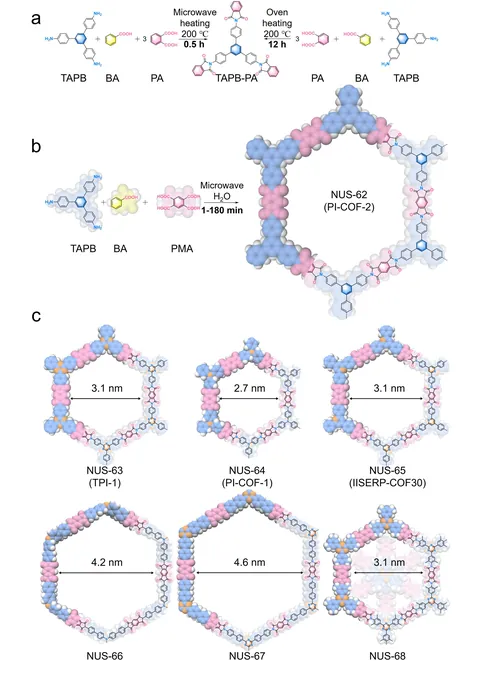
Revolutionizing Lithium-Ion Batteries: The Game-Changing Method of Eco-Friendly COF Synthesis
2025-05-09
Author: Ming
Innovative Breakthrough in Material Science
In an exciting breakthrough published in the Journal of the American Chemical Society, researchers from the National University of Singapore have unveiled a groundbreaking, eco-friendly method for creating imide-linked covalent organic frameworks (COFs) using a water-assisted microwave synthesis technique. This advancement not only streamlines the production process but also eliminates the reliance on harmful organic solvents.
Speed Meets Sustainability
Traditional methods of COF synthesis are often time-consuming, requiring high temperatures and toxic materials, with processes that could stretch from days to weeks. However, this new microwave-assisted approach can generate high-quality COFs in mere minutes. The result? An impressive enhancement in both crystallinity and porosity, leading to superior material properties.
A Record-Setting Performance in Energy Storage
Among the most intriguing applications of these newly synthesized COFs is their use in energy storage, particularly as cathodes in lithium-ion batteries. One standout, dubbed NUS-63, was combined with carboxylic acid functionalized carbon nanotubes (CNTs) to create a high-performance composite. This innovative material achieved a staggering specific capacity of 154.0 mAh g-1 at an ultra-high current density of 10 A g-1, showcasing remarkable stability by retaining 128.6 mAh g-1 after 10,000 charge cycles — a feat that highlights its durability under extreme conditions.
The Future of COF Synthesis
This water-assisted microwave synthesis not only provides an efficient and cost-effective solution but also paves the way for further innovations in the field. By removing the need for solvent screening and drastically cutting down on reaction times, this new method emerges as a sustainable alternative for COF production.
The research suggests that microwave synthesis could revolutionize the way functional imide-linked COFs are developed, unlocking new possibilities across various applications, including gas adsorption, advanced catalysis, and more powerful energy storage solutions.




 Brasil (PT)
Brasil (PT)
 Canada (EN)
Canada (EN)
 Chile (ES)
Chile (ES)
 Česko (CS)
Česko (CS)
 대한민국 (KO)
대한민국 (KO)
 España (ES)
España (ES)
 France (FR)
France (FR)
 Hong Kong (EN)
Hong Kong (EN)
 Italia (IT)
Italia (IT)
 日本 (JA)
日本 (JA)
 Magyarország (HU)
Magyarország (HU)
 Norge (NO)
Norge (NO)
 Polska (PL)
Polska (PL)
 Schweiz (DE)
Schweiz (DE)
 Singapore (EN)
Singapore (EN)
 Sverige (SV)
Sverige (SV)
 Suomi (FI)
Suomi (FI)
 Türkiye (TR)
Türkiye (TR)
 الإمارات العربية المتحدة (AR)
الإمارات العربية المتحدة (AR)